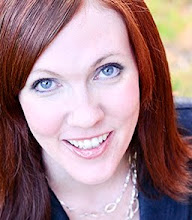A friend of mine from high school stopped by last night to catch up over a glass of wine. She's in town briefly before going back to grad school to become a psychiatrist and was telling me about her summer job working in a home for troubled children.
This particular home is for kids who have been taken away from their parents but are not ready to go into the foster system because of behavioral or mental issues. Their stories are some of the saddest I've ever heard. I won't burden you with the details, but suffice to say that many of these kids have experienced the worst kinds of trauma life has to offer. And what was even more troubling is that this home serves a rather small city. I cannot even imagine the tales from homes like this in Chicago or New York.
As she was telling me the types of therapy the social workers use to help these children, it occurred to me that this sounds like the perfect place for religion. Now that I've been studying Christianity and know more about what it actually teaches, it seems like the message that God loves all people and that Jesus is on your side would be perfect for these kids. So I asked what sort of church/religious program the home includes.
She shrugged. "They can go to church on Sundays if they want," she said. "But we don't push that. We don't feel like it's right to impose religious beliefs on them."
Really? It seems to me like that is quite possibly the
only thing they need.
It's easy to shrug off the concept that God loves you when you come from a relatively stable home and have parents who love you. You get a sense of self-worth and reason for being from your family, so you have the luxury of not needing to worry about whether there's a God who cares about you too.
One of the things that's most psychologically dangerous about this atheistic mindset is that it means that humans are the highest power in the known universe. And these kids have been told by the humans who know them best -- their parents -- that they're worthless, despicable and unworthy of love. I doubt it's much help to them when the social workers tell them that they're actually great people. After all, the social workers don't know them as well as their parents did, and their parents cast them aside like old trash.
I'm sure that the ultimate reason behind not "imposing" God on these kids is the politically correct train of thought that nobody can say for sure whether one religion is more true than another, so it's not right to tell anyone that the Bible is the word of a God who exists when it may very well be false. But what the people who run this home seem to be missing is that it doesn't really matter whether or not the Bible is 100% true. Tell them anyway. If you don't believe it personally, lie.
The kids in homes like this have almost no hope of ever doing anything with their lives. 95% end up in prison, mental institutions, or worse. You can say with near certainty that each kid is going to have a horrible life and die young. But do the social workers tell them that? No. They lie. They give them a message of hope that they can be anything, do anything and the sky's the limit. They do it because it's so good for the kids to hear such positive thoughts about their future -- and, besides, there's always that 5% chance that any one of the kids will beat the odds and turn his life around.
So why not just tell them to turn to the Bible for comfort and believe that there's a God who loves them unconditionally, even if you don't believe it yourself? It would be such a powerful message of comfort for a child who has been beaten down physically and mentally by the humans who were supposed to love him most. And, like the odds of them turning their lives around, you may think it's unlikely that what you're teaching them about religion is 100% true, but telling them anyway is the right thing to do.
Whoever supports not making Christianity a major component of these homes cannot have ever known what it's like to feel completely unloved. These social workers can go home to their spouses and children and take comfort in knowing that they're cherished and needed. Whereas the kids are left to lie in bed each night alone, feeling loved by no one. But at least no one imposed their religious beliefs on them.

